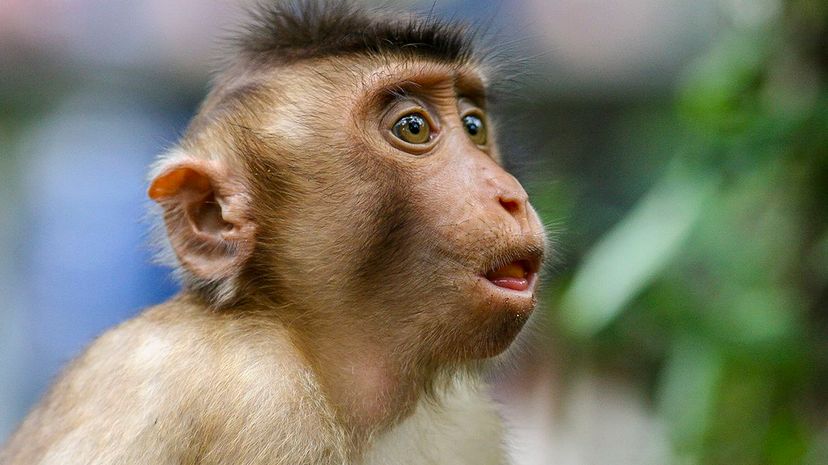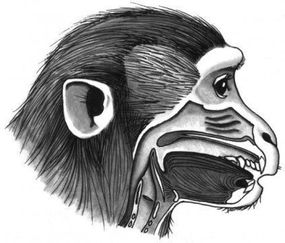
Back in the 1960's and 70's, it was all the rage with primatologists to conduct studies in which infant chimpanzees were raised as though they were human infants. This practice tested the limits of what a non-human primate could accomplish if raised in human society, aiming to parse what was nature and what was nurture. These studies often played out like dark fairytales, with chimp babies growing up into tragic half-humans, living between two worlds and belonging to neither. But one thing that came out of these studies was the realization that although these chimpanzees raised in human environments learned to behave in eerily human-ish ways, none of them could ever be taught to talk.
"I think that surprised a lot of people," says Asif Ghazanfar, a professor of psychology at the Princeton Neuroscience Institute. "They weren't even producing rudimentary words like a drunk person would say."
Advertisement
According to Ghazanfar, that led researchers to develop a few theories about why this would be:
- Other primates might have the brains to produce speech — after all, they can do rudimentary symbolic communication — but they're lacking the vocal anatomy to make speech sounds
- Primates completely lack the neural control to produce speech sounds
- They lack both the proper brain and the proper anatomy for speech
Around this time, linguist and cognitive scientist Philip Lieberman tried to determine which, if any, of these conclusions were true. In a 1969 study, Lieberman and his coauthors examined cadavers of macaque monkeys (Macaca mulatta) to estimate, based on their anatomy, what speech sounds they could theoretically be able to make. Lieberman's conclusion was that, based on the anatomy of a macaque, they wouldn't be able to speak, even if their brains were wired just like ours. Based on this study, the idea took hold that one of the main reason chimps and other primates can't speak is that they lack the vocal anatomy to do so.
But now, almost half a century later, a new study published in Science Advances has revisited the question of why monkeys can't talk — and it debunks Lieberman's notion that monkeys lack the appropriate vocal anatomy. Instead, they say, monkeys mouths and throats could form human-sounding words, but their brains aren't good enough to tell their body how to do so.

Ghazanfar and an international team of researchers captured X-ray video of a macaque eating, squawking, and making facial expressions, then made a model of those movements which could predict the potential vocal range of the animal. They found that, anatomically speaking, a macaque has everything it needs to form entire sentences of human speech, although it's voice definitely wouldn't sound human. What it doesn't have is the necessary neural ability to coordinate respiration, oral-facial muscle control, and laryngeal tension — all things we have to do in order to talk. In fact, Ghazanfar says, all the Old World primates — all the species in Africa and Asia, including the great apes — probably have the same ability. They can conclude this is because these monkeys, in large part, have very similar vocal and facial expressions.
Check out this Princeton press release for a (somewhat nightmarish) audio simulation of what a monkey saying "Will you marry me?" might sound like. Why humans got such a tricked-out brain in comparison to our primate relatives is hard to know, but it's fun to think about.
"Nobody's sure what driving forces and pressures led to humans elaborating a more sophisticated control of the vocal anatomy," says Ghazanfar. "Maybe as group size increased, it became inefficient to communicate via physical grooming, and you had to maintain relationships with many individuals, so the burden to maintain those relationships was shifted to the vocal-acoustic domain."
So, to address what you really want to know, how feasible is a "Planet of the Apes" scenario?
"Well, I don't know [that], but the new version of 'Planet of the Apes' got it right!" says Ghazanfar. "In the first movie of the new series, the chimpanzee was given a drug to enhance its cognition, giving it the ability speak. They didn't even address vocal anatomy, so they accidentally got it correct. Hollywood is prescient sometimes."
Advertisement